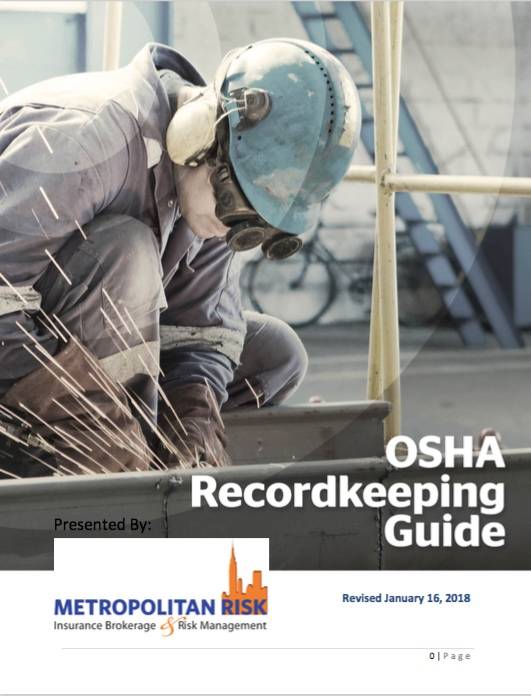REMINDER ; it’s that time of year again. Certain companies by virtue of their size and or their industries are required to post a summary of their injuries at their worksite between February 1st and April 30th. No worries; that’s why we built our OSHA REPORTING GUIDE FOR 2018. The form to be used is OSHA Form 300A Summary of Injuries. Current and former employees have the right to request further injury records via the OSHA 300 Report if they request such from your company. It’s very important that you true up your OSHA 300 reports for the year then complete the OSHA 300A report and post it on site or sites. Failure to do so can trigger fines and or a deeper dive by OSHA if they swing by and ask for evidence of your compliance. Need help? Download our updated OSHA Reporting Guide for 2018 and share it with HR & or Safety Compliance.
UPDATE ON THE ELECTRONIC REPORTING REQUIREMENT:
OSHA is really trying hard to get folks to begin to upload their OSHA incidents into their new system called “Injury Tracking System” of ITA. They have moved the implementation date back several times. The “new” date for compliance for some companies will be July 1st, 2018 to submit their data 300A ; March 2nd 2019 thereafter. For a complete list of exempted organizations CLICK HERE. Please note all employers, including those partially exempted by reason of company size or industry classification, must report to OSHA any workplace incident that results in a fatality, in-patient hospitalization, amputation, or loss of an eye (see §1904.39).
If you are located in the following states you are currently exempted from the electronic reporting requirements. Please Note that the following OSHA-approved State Plans have not yet adopted the requirement to submit injury and illness reports electronically: CA, MD, MN, SC, UT, WA and WY. Businesses in these states are not currently required to submit their summary data through the ITA. Similarly, state and local government establishments in IL, ME, NJ, and NY are not currently required to submit their data through the ITA. Contact information for each of the State Plans can be found at https://www.osha.gov/dcsp/osp/states.html.
